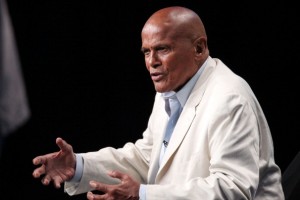D.C. experienced the nation’s fastest population growth for the first time in more than 70 years, according to newly released U.S. Census Bureau data. The District’s population grew by 2.7 percent between April 2010 and June 2011. Much of the population growth can be attributed to increases in white and Hispanic residents; at the same time, D.C.’s black population has declined.
Author Archives: Elahe Izadi
Unemployment Payments, Now On Debit Cards
Getting unemployment compensation payments are now easier for D.C. residents without bank accounts; this week, the District’s Department of Employment Services began issuing unemployment benefits through debit cards. Only 2,000 people have volunteered for the pilot program, but starting in January, the agency will stop sending checks to anyone receiving unemployment compensation. Cashing unemployment checks can be costly or inconvenient for the more than 12 percent of D.C. households without bank accounts.
Report: D.C.’s Subsidies Have Few Job Creation Requirements
Perhaps creating more jobs is a way to lessen D.C.’s unemployment disparities. But do government subsidies to private developers spur such economic development? According to a new report by nonprofit Good Jobs First, the subsidies the D.C. government currently provides to developers include few requirements for job creation, wage levels or employee health benefits. D.C. has the fewest requirements of anywhere else in the country, when comparing the District to all 50 states.
Mapping D.C. Wealth and Poverty
Although the D.C. metro area doesn’t rank as one of the regions with the most economic inequality, this map of the District proper shows a stark divide between neighborhoods east of the Anacostia and in upper Northwest.
Why Shoppers Spend Money They Don’t Have
Here’s something to ponder as the holidays approach: people spend money to offset their perceived lower statuses in society. That’s according to a set of University of San Diego studies examining the effects of racial stereotypes on shoppers’ spending habits.
Americans Say Improving Economy More Important Than Shrinking Wealth Gap
More Americans believe that fixing the overall economy, rather than reducing the gap between the rich and poor, should be a top governmental priority, according to a recent Gallup poll. The issue of income inequality has become a topic of public discourse in recent months; it’s been the main focus of the Occupy movement.
‘Love, Not Google, Got Me Out Of Poverty’
There have been a number of responses to Forbes technology writer Gene Marks’ article, “If I Was A Poor Black Kid.” Here, News One blogger Terrell Jermaine Starr shares his path to becoming a Fulbright Scholar. Starr writes that what Marks “failed to touch on is that overcoming poverty is not only about access and citing statistics. It is a major — sometimes painful — cultural shift, both mentally and socially.”
Liquor Licenses and Gentrification
New bars and restaurants can help spur growth or change in a neighborhood, or they can be viewed as “tangible evidence of gentrification,” writes GOOD‘s Noreen Malone. Sheldon Scott, owner of Marvin and other D.C. restaurants and bars, explains the difficulty of securing a liquor license in D.C.
The Pain of Class Climbing
Striving to do better than your parents can also be fraught with pain. Famed dancer a choreographer Bill T. Jones shares his experience with “class climbing” as he recounts this moving story evoked by his NPR winter song pick, Franz Schubert’s “Winterreise.”
DCentric Picks: Harry Belafonte Book Talk

Frederick M. Brown / Getty Images
What: Singer, actor and activist Harry Belafonte book talk.
Where: Busboys and Poets, 14th and V streets, NW.
When: 5 p.m., Sunday.
Cost: Free.
Why you should go: Belafonte is one of the most prominent celebrities-turned civil rights activists of the 20th century, and he has plenty of stories to share, from his role in the March On Washington to popularizing Calypso music. Belafonte, who appeared on WAMU 88.5.’s Kojo Nnamdi Show last month, will discuss his new book, “My Song: A Memoir.”









